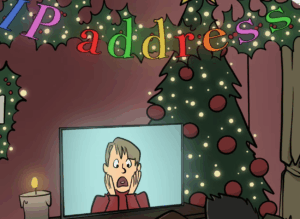 One of Google’s themes, when it announced it was dividing its core advertising business from its more experimental endeavors by restructuring into the holding company Alphabet, was “transparency.” Specifically, in the words of Alphabet CEO Larry Page, “improving the transparency and oversight of what we’re doing.”
One of Google’s themes, when it announced it was dividing its core advertising business from its more experimental endeavors by restructuring into the holding company Alphabet, was “transparency.” Specifically, in the words of Alphabet CEO Larry Page, “improving the transparency and oversight of what we’re doing.”
What that means, however, is anyone’s guess.
We asked agencies and ad tech vendors what they think about the claims around improving transparency, and what its restructuring means for the ad ecosystem as a whole.
Click below or scroll down to read their entries
- Steve Katelman, EVP, global strategic partnerships, digital, Omnicom Media Group
- Sam Cox, VP OPEN Global Media Management, MediaMath
- Rachel Pasqua, practice lead for mobile and emerging technologies, MEC Global, North America
- Rob Griffin, EVP, media futures and innovation, HAVAS
Kelly Liyakasa and Allison Schiff contributed
Steve Katelman, EVP, global strategic partnerships, digital, Omnicom Media Group
The Google restructuring makes a lot of sense for Wall Street. Moving businesses like Nest and GoogleX into their own separate business units will allow them to be more nimble. That said, I don’t foresee this move affecting the “ad business” too much.
Insofar as “transparency,” I don’t see how this impacts that at all. I don’t view them as any more or less transparent than their peers. The fact that Philipp Schindler will be at the helm of the ad business is welcomed news as he has a strong understanding of the agency business.
Overall, I see this move as a good one that will strengthen all business units of Google and will allow us to continue the strong partnership we’ve built. Maybe now they will finally cure cancer and be able to drive me to work.
Sam Cox, VP OPEN Global Media Management, MediaMath
The changes at Google – launching Alphabet and further separating YouTube – means that transparency about business divisions, policy decisions and the independence of business units will be the key to unlocking the value of the various parts of that full ecosystem.
Business division transparency means: How are the once combined parts going to function together? [Will there be] preference? Bias? Policy decision transparency means: Will the policies be decided by a central committee, or by the independent units? Again, preference or bias? Finally, independence means: Will the units be supported to develop outside the core ecosystem of the former Google, and prefer or bias companies outside the Alphabet umbrella?
Rachel Pasqua, practice lead for mobile and emerging technologies, MEC Global, North America
The idea of a juggernaut like Google being just one of several op-cos in a holding company is a bit jarring at first – We’re used to Google being the biggest of the big, the most influential force of them all. However, in world where digital experiences are quickly moving well beyond the traditional browser (desktop, mobile or otherwise) it’s a prescient move.
These new entities, from Calico to Nest, will generate new data from all corners of the Internet of things, data that will enable marketers to deliver more personal, more contextually relevant and ultimately, more successful customer experiences of all kinds. The move to establish these new companies as independent entities will allow them to focus on streamlined innovation in these fast evolving areas that have future promise for marketers and while enabling Google to hone its focus on the things of immediate importance to Madison Avenue. There’s no doubt that the efforts of all companies are focused on a shared greater good – i.e., better data, more meaningful content, more successful advertising – giving each the autonomy to focus on its own niche offering will simply speed the process.
The name itself may take some getting used to but, as longtime partners of Google, we’re incredibly excited to test and learn alongside Alphabet with the shared goal of delivering a better connected world to our clients and their customers.
Rob Griffin, EVP, media futures and innovation, HAVAS
The moves make sense to me, especially pulling YouTube from the open exchange. While it will make working with them a bit more complicated, if I was in their shoes I would do it. It offers more control over quality. I assume someone will create an automated way to buy it directly even if not on the open exchange.
Partitioning the business lines off to me projects the health of the core business in the eyes of investors. Then allowing the innovation side to be more adventurous.













